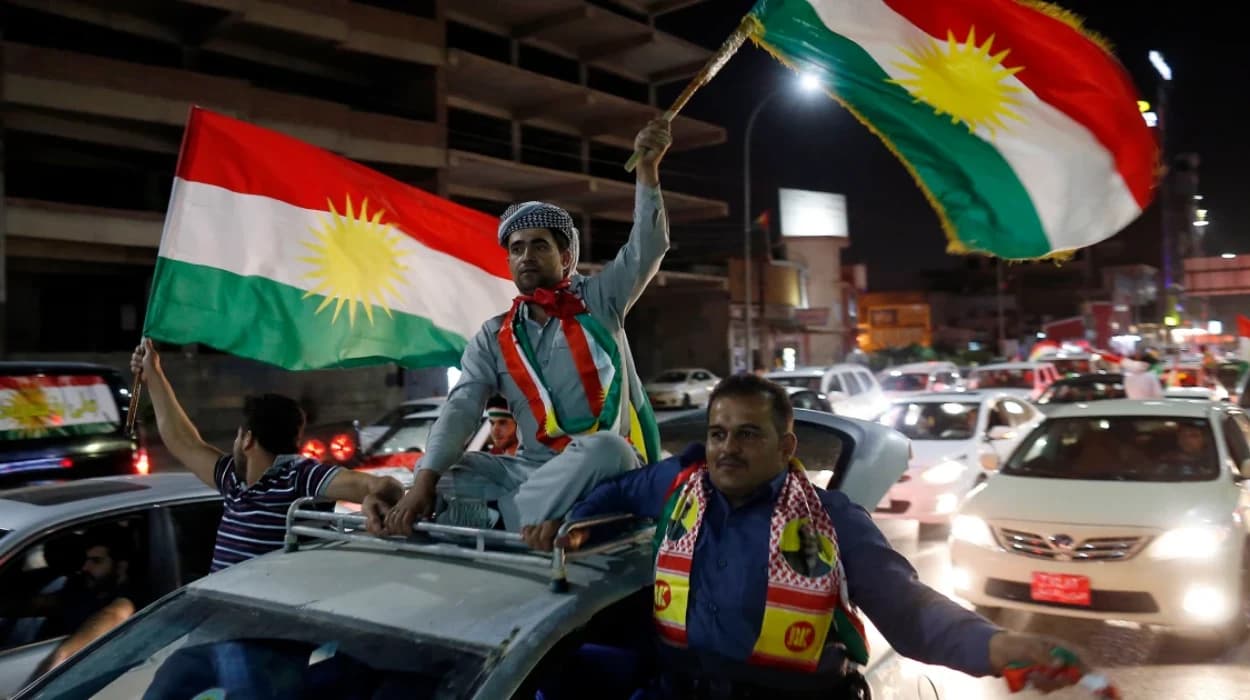Kurds worldwide have strongly condemned Iraq's decision to exclude them from the upcoming elections, describing it as a violation of their political rights. Key Kurdish political figures and international voices have called for reinstatement and respect for Kurdish representation within Iraq’s electoral process.
Iraq Bars Kurds From Key Electoral Participation
As reported by Sozdar Sarwar of Kurdistan24, Iraq’s
Independent High Electoral Commission has taken a controversial step by
excluding Kurdish candidates from the ballot in several electoral districts.
This decision has sparked widespread outcry among Kurdish communities both
inside Iraq and across the globe.
The move is said to impact Kurdish political parties and
minority representation in the parliamentary elections scheduled for later this
year. The Kurdistan Democratic Party (KDP), Patriotic Union of Kurdistan (PUK),
and other Kurdish factions have condemned the exclusion, arguing it undermines
the democratic process and the constitutional rights of the Kurdish people.
Kurdish Leaders Call for Reversal of Exclusion
Masrour Barzani, Prime Minister of the Kurdistan Regional Government, was quoted by Kurdistan24 journalist Delshad Barwari stating,
“This unjust decision violates the fundamental rights of the Kurdish people and threatens the political stability of Iraq”.
Other senior Kurdish leaders have
echoed similar concerns, urging Iraq’s electoral authorities and the federal
government to reconsider the exclusion and ensure full Kurdish participation.
The Kurdish Regional Government's Foreign Ministry also released a statement through spokesperson Sherzad Omar, as reported by journalist Tara Ahmed of Al Jazeera, affirming that
“disenfranchising millions of Kurds contradicts democratic principles and violates international standards of political representation”.
International Community Reacts to the Exclusion
International observers and Kurdish diaspora organisations in Europe, the United States, and other regions have expressed solidarity with the affected Kurdish groups. For instance, the European Kurdish Democratic Society issued a communiqué urging the Iraqi government to
“uphold inclusivity and the rights of ethnic minorities to participate equally in Iraq’s political life,”
according to the reporting by journalist Alexis Fontaine of Euronews.
Human rights organisations monitoring Iraq's electoral
process have urged Iraq to adhere to its constitutional commitments and respect
minority rights amid concerns about rising sectarian tensions. The United Nations
Assistance Mission for Iraq (UNAMI) released a statement as reported by
Mohammed Al-Jabouri of Reuters, stressing the importance of inclusive elections
as a pillar for Iraq’s democracy and peace.
Background on Kurdish Political Participation in Iraq
Historically, Kurds have been a significant ethnic group in
Iraq with autonomous governance in the Kurdistan Region. The 2005 Iraqi
Constitution granted the Kurdistan Regional Government (KRG) considerable
autonomy and guaranteed Kurdish representation in the federal government.
However, political disputes and tensions between Baghdad and Erbil have
periodically challenged Kurdish participation in national politics.
Journalist Haval Najm of Rudaw recalls in his commentary that
“this decision to bar Kurds from voting in specific districts comes amid ongoing disputes over disputed territories and resource sharing between the federal government and KRG”.
Implications for Iraq’s Political Stability
Political analysts warn that excluding Kurds from the ballot could exacerbate internal divisions and destabilise Iraq’s fragile political landscape ahead of the elections. According to Dr. Shirin Abdullah, a political science expert interviewed by journalist Layla Saeed of Middle East Eye,
“marginalising a key ethnic group risks undermining national unity and could lead to increased political unrest”.
The Iraqi government has yet to formally respond to calls
for reversal, maintaining that the electoral decisions conform to the latest
legal interpretations of electoral law.
Kurdish Voices From Diaspora and Advocacy Groups
Among Kurds living abroad, there is a chorus of condemnation. Leyla Hassan, a Kurdish human rights advocate based in London, said in an interview with The Guardian’s correspondent Omar Khalil,
“this move is a setback to years of struggle by Kurds to achieve political equality in Iraq and the region”.
Diaspora Kurdish organisations worldwide are mobilising petitions and lobbying efforts targeting international bodies to pressure Iraq into reversing the electoral commission's decision. Journalists reporting for Kurdish Media Network highlighted that solidarity protests took place in several European capitals this week, demonstrating the transnational nature of the Kurdish response.
